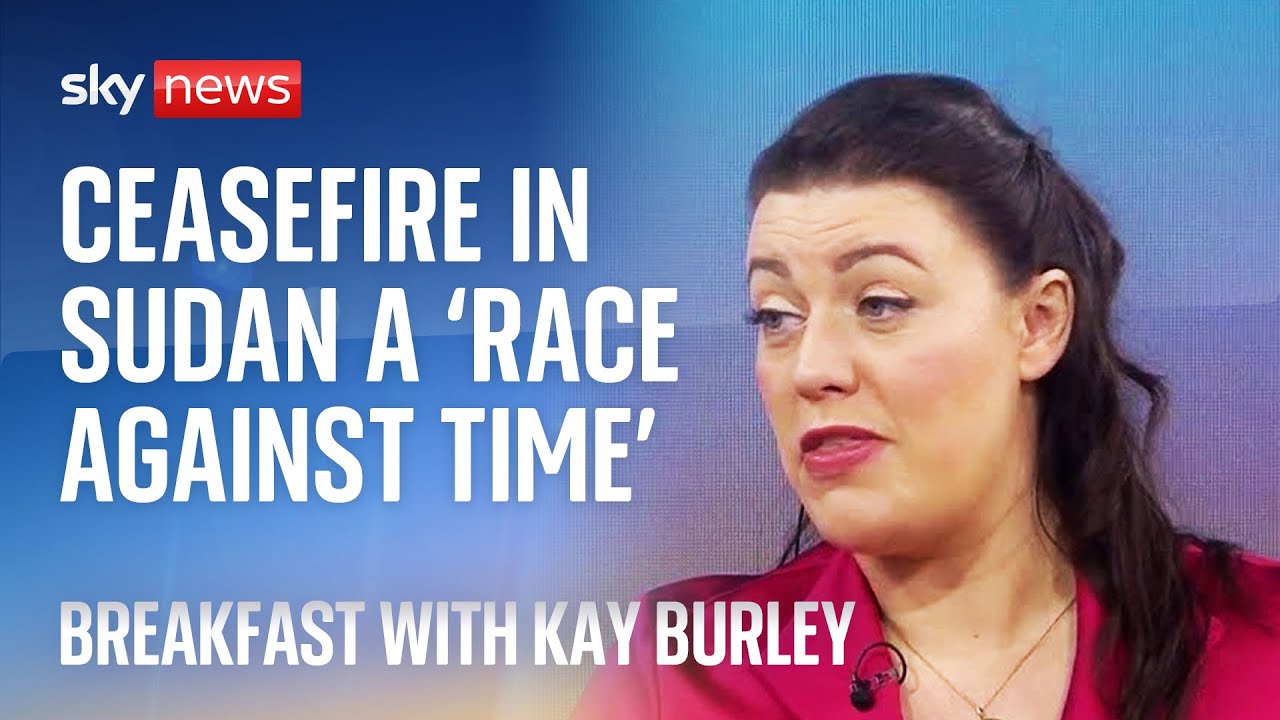Sudan: 'A Race Against Time' For Britons To Leave After Ceasefire Announced
Unleash Your Creative Genius with MuseMind: Your AI-Powered Content Creation Copilot. Try now! 🚀
The recent developments in Sudan have left the global community on edge, navigating a delicate balance between hope and apprehension. Alicia Kearns, in a recent meeting with the Foreign Affairs select committee, articulated the collective concern, "Enormous relief, but I think all of us need to hold MOD, Foreign Office, all the armed forces, and everyone on the ground in Sudan in our hearts."
As the world watches the situation unfold, the critical question remains: can the ceasefire hold long enough for the evacuation efforts to be successful? Kearns, with a mix of optimism and caution, stresses the urgency, "This is our window to get people out, so I think we all have to hope as hard as we can."
The Great Evacuation Puzzle
With approximately 4,000 British nationals in Sudan, the evacuation process appears daunting. Kearns alludes to the complexity of the situation, emphasizing that not all those registered for evacuation might actually want to leave. "Numbers don't necessarily add up, but it is a Race Against Time." In the midst of this critical period, the focus must shift to strategic planning beyond the immediate evacuation.
"Passport holders, women, children, and the vulnerable are the priority," Kearns affirms. "The right thing to do is ensuring their safety, but the larger challenge is what happens next." How can this fragile ceasefire be leveraged for a transition to formal peace talks? The role of the Brits as a key member of the UN Security Council is crucial in leading this dialogue, Kearns points out.
A Delicate Diplomatic Dance
While the Americans took a significant role in securing the ceasefire, Kearns asserts the continuous efforts of the UK in diplomatic negotiations. "We need to make sure we don't see a return to violence," she emphasizes. With the intricacies of Sudan's internal factions, the path to sustainable peace is precarious.
"British nationals need to stay put until contacted by the Foreign Office," Kearns states firmly. "Safety is paramount, and hasty actions could lead to unforeseen dangers." The careful orchestration of the evacuation plan, primarily through airlift, underscores the need for precision and caution. Kearns anticipates potential challenges, including the degrading airstrip and the possibility of using alternative routes if necessary.
Navigating Uncertainty with Hope
Drawing on recent global events, concerns are raised about the parallels to the Afghanistan situation. Kearns dismisses the comparison, highlighting the unique complexities of the Sudan crisis. "This is not Afghanistan 2.0. The threats and complexities here are of a different nature."
As the discussion nears its end, Kearns's confidence in the evacuation process is visibly tempered by the enormity of the task at hand. "I have to hope, and in diplomacy, if you don't have hope, you have nothing." The collaborative efforts of international partners become paramount as Kearns concludes, "The government has suggested leaning on other global partners, and it may be that others will help us get some of ours out."
With the world's eyes fixed on the unfolding situation in Sudan, the hope remains that diplomacy and strategic planning will pave the way for a peaceful resolution. As Alicia Kearns continues her relentless efforts, the global community awaits the safe evacuation of those in harm's way.

Related Recaps
- VLOG - Spend the day with me + Shower Routine, Hair, Make up, fragrance, Shopping & more
- NEW blink 182 - YOU DON'T KNOW WHAT YOU'VE GOT Official Lyric Video | REACTION!!
- 明日で5周年!年表で振り返る、大神ミオの軌跡
- Let the Madness Begin (Guest Mike Golic Jr.) - Ep. 263
- Cloud services and Types of Cloud Deployments part 2. - Tech And Tech